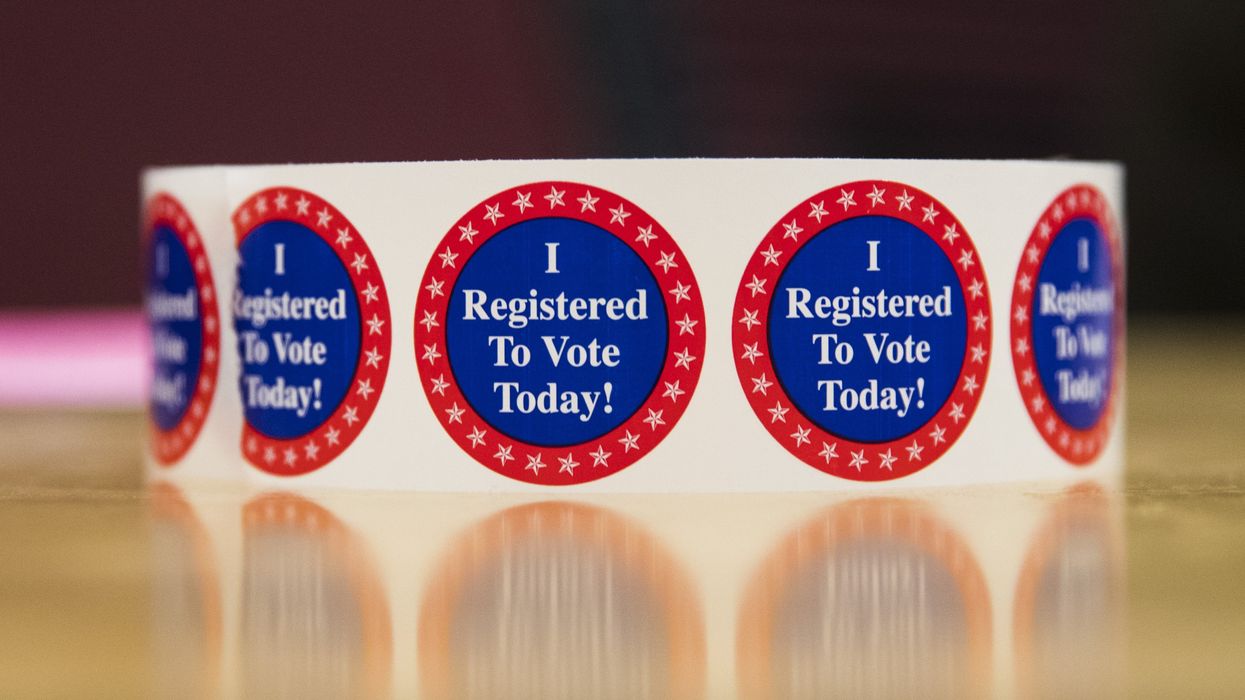Harris is director of media engagement at Stand Up America.
This is National Voter Education Week, when activists and organizations across the country mobilize to educate voters on how to make their voices heard in November. This year, that mission is more important than ever. While voting rights advocates are hard at work helping voters find their polling location and voting options, learn what’s on their ballot, and make a plan for voting, MAGA politicians are ramping up efforts to make it more difficult to vote and even purging voter rolls in battleground states.
In MAGA-led states like Florida, Kansas, Missouri and Texas, voter outreach groups face legal barriers and steep fines designed to stifle their critical work. In Florida, for example, Gov. Ron DeSantis signed a bill that targets community-based organizations that help register voters of color, reducing the number of days these organizations have to submit voter registration applications while increasing fines for late submissions — up to $250,000 annually.
Data shows that the impacted groups “enrolled about 1.5 percent of all white registered voters between 2012 and 2023,” but they registered “roughly 10 percent of Black voters, 9 percent of Hispanic voters, and some 8 percent of voters who were members of other minority groups” — demographic groups that favor Democrats over Republicans. No wonder DeSantis wants to stop their work. Voter registration drives in the Sunshine State fell 95 percent in the months after the Florida law took effect in 2023, compared with the same months four years earlier.
MAGA politicians have found other creative ways to keep some citizens out of the electoral process. Republican-led states are purging voter rolls of eligible voters just months ahead of the November election. In June, Ohio Secretary of State Frank LaRose published a list of over 150,000 inactive voters who were eligible to be removed from the state’s voter registration database. Over half of the voters at risk of being purged live in majority-minority counties. In North Carolina, Republicans sued to have 225,000 voters removed from the rolls after making baseless claims that the state was registering “noncitizens.” In August, Texas Gov. Greg Abbott announced that his state had removed over 1 million people from its voter rolls since passing a package of anti-voting measures.
These purges and restrictive measures aren’t isolated incidents; they’re part of a nationwide strategy to silence minority voters, boost Republicans, and undermine free and fair elections.
Despite these challenges, we are not backing down. Across the country, groups are standing up to these tired Jim Crow tactics and ensuring citizens are familiar with new requirements. At Stand Up America, we’re using digital ads and texts to reach out to voters in states with the biggest gaps between the number of eligible voters and the number of voters who are actually registered. We’re also partnering with social media influencers and dozens of celebrities to help their fans and followers check their registration, learn what’s at stake in the election and make sure they’re ready to make their voices heard. We’ve registered nearly 100,000 voters since 2020 using these tactics.
We know that voters should choose their leaders — politicians shouldn’t get to choose their voters. The fight for voting rights in the midst of MAGA’s regressive vision for our country is a reminder of what National Voter Education Week is about — building a truly representative democracy. As Abraham Lincoln once said, America is a “government of the people, by the people, [and] for the people.” We intend to keep it that way.
Not sure your voter status is up to date? Text CHECK to 63033 to find out. Or visit standupamerica.com to help get out the vote. Together we can protect democracy and make sure every eligible voice is heard in this year’s election.



















Marco Rubio is the only adult left in the room